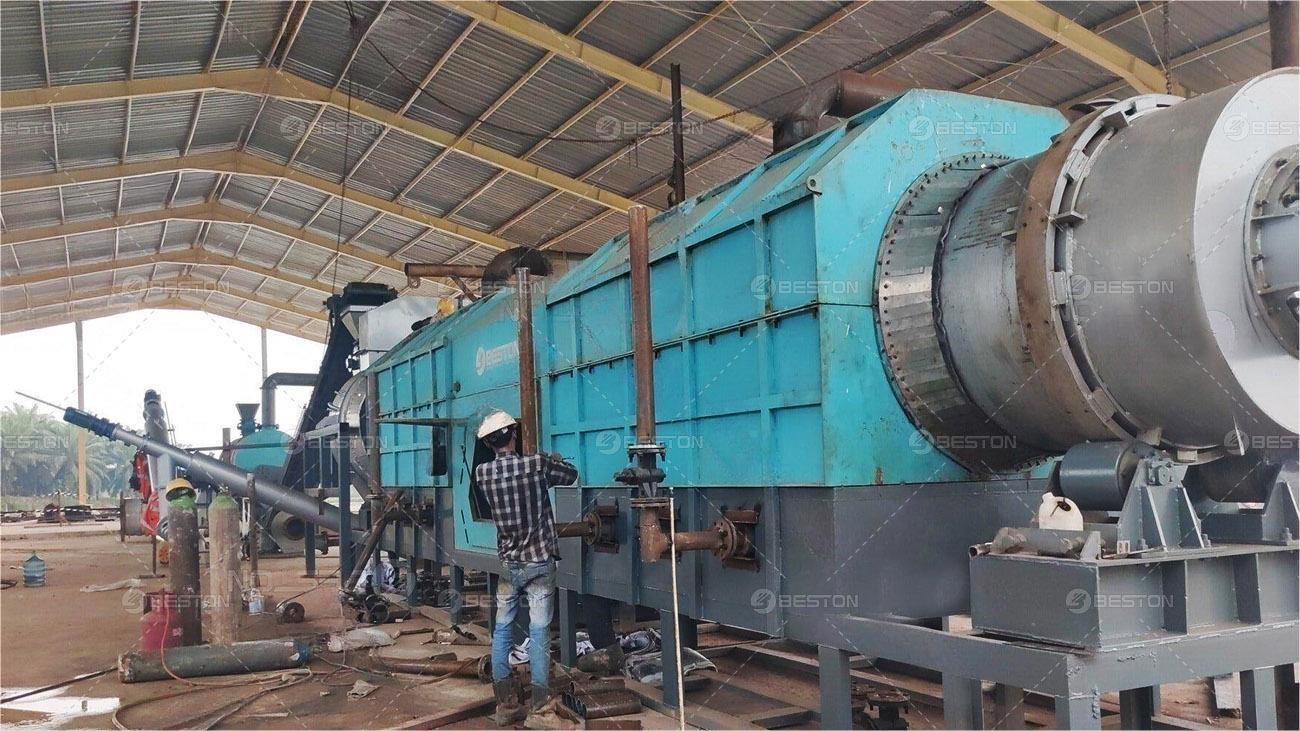In the realm of charcoal production, the dichotomy between traditional charcoal kilns and modern technologies, epitomized by the coconut shell charcoal making machine, is reshaping the landscape of this age-old industry. This exploration navigates the nuances, advantages, and transformative impact that the advanced coconut shell charcoal making machine brings to the forefront when juxtaposed with conventional charcoal kilns.
The Timeless Tradition of Charcoal Production
Charcoal, a quintessential energy source and industrial raw material, has been produced for centuries using traditional methods. The archaic approach involves a charcoal kiln, where wood or other biomass materials undergo pyrolysis in a slow and controlled combustion process, eventually yielding charcoal.
A Symphony of Slow Pyrolysis:
Traditional charcoal kilns engage in a symphony of slow pyrolysis. The deliberate pace ensures the gradual transformation of wood into charcoal, a process that has stood the test of time but comes with inherent limitations.
Environmental Considerations:
While steeped in tradition, traditional kilns often pose environmental concerns due to inefficiencies in temperature control and the release of volatile organic compounds into the atmosphere.
The Rise of Coconut Shell Charcoal Making Machines
In contrast to the time-honored methods, the advent of the coconut shell charcoal making machine heralds a new era in charcoal production, particularly in the utilization of coconut shells as a feedstock.
Innovative Pyrolysis Technology:
The coconut shell charcoal making machine leverages innovative pyrolysis technology, accelerating the decomposition process and optimizing the yield of high-quality charcoal within a controlled timeframe.
Closed-Loop System:
Modern machines often employ a closed-loop system, minimizing emissions and maximizing resource efficiency. The closed-loop ensures that the process is not just expedited but also environmentally responsible.
Coconut Shell as Ideal Feedstock:
The coconut shell, often considered waste in various industries, finds redemption as an ideal feedstock for these machines. The utilization of coconut shells not only adds value to an otherwise discarded resource but also addresses sustainability concerns.

Unveiling the Advantages of Coconut Shell Charcoal Making Machines
1. Faster Production Rates:
Unlike the unhurried pace of traditional kilns, coconut shell charcoal making machines boast faster production rates. The optimized pyrolysis process significantly reduces the time required to convert coconut shells into charcoal, enhancing operational efficiency.
2. High-Quality Charcoal Output:
The controlled environment of modern machines ensures the production of high-quality charcoal with desirable characteristics. The resulting charcoal often exhibits better calorific value and reduced impurities compared to its traditional counterpart.
3. Resource Efficiency:
The closed-loop system and advanced technologies minimize resource wastage. The coconut shell charcoal making machine extracts maximum value from the feedstock, leaving minimal byproducts and contributing to a more sustainable and resource-efficient process.
4. Environmental Footprint:
Addressing the environmental concerns associated with traditional kilns, coconut shell charcoal making machine prioritizes eco-friendliness. Efficient temperature control and emission reduction mechanisms mitigate the impact on air quality and contribute to a greener production process.
Comparing the Two Worlds: Traditional Kilns vs. Coconut Shell Charcoal Making Machines
1. Yield Optimization:
Traditional kilns, with their slower pyrolysis rates, often struggle to optimize charcoal yields. In contrast, coconut shell charcoal making machines excel in maximizing yield within shorter timeframes, enhancing productivity.
2. Feedstock Diversity:
While traditional kilns primarily rely on wood, coconut shell charcoal making machines broaden the horizon by efficiently utilizing coconut shells. This diversification of feedstock aligns with sustainable practices and reduces dependence on specific biomass sources.
3. Process Control:
Modern machines provide meticulous control over the pyrolysis process. Parameters such as temperature, pressure, and residence time can be precisely managed, ensuring consistency and quality in the produced charcoal—a level of control often challenging to achieve in traditional kilns.
The Future of Charcoal Production: A Technological Renaissance
As the charcoal production landscape undergoes a technological renaissance, the merits of coconut shell charcoal making machine becomes increasingly evident. The synergy of innovation, resource efficiency, and environmental responsibility positions these machines as catalysts for sustainable charcoal production.
In the dichotomy of tradition and innovation, the coconut shell charcoal making machine not only preserves the essence of charcoal production but elevates it to new heights. This intersection of past and future creates a harmonious blend where the time-tested utility of charcoal converges with the demands of a rapidly evolving world.

Comments
No comments yet. Be the first to react!